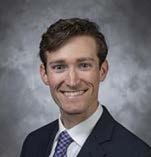VOLUME 36, ISSUE 2

Collin S. Buerger, M.D.
CA-3 Resident
Baylor Scott & White Medical Center-Temple
Temple, TX
Notes to Self: Thoughts on Medical Training and Burnout
An Analogy.
Have you ever seen a wild animal with its leg caught in a snare? Expressions of panic, bewilderment, and fear give way to anguish and defeat as the creature succumbs to the ironic hope that their trapper will return to either end their suffering or free them. Either would be a welcome option.
I would not say that I have struggled with overt mental illness; however, my time in medical school was likely the closest to clinical depression I have come. It should not have been surprising. You take someone who has always played sports with the seasons, enjoyed daily home life, and picked up various extracurriculars to inject variety, and you strip all that away and stretch their neural bandwidth from one test day to the next. It is no wonder people feel disillusioned with their medical journey. Melodrama and embellishment aside, it is safe to say that I felt trapped.
An Example.
Small town sports teams do not typically have the luxury of an elite pool of athletes from which to choose; therefore, participation was not necessarily optional. Early on we were indoctrinated with the idea that involvement was the purest form of contribution. If you wanted to play football in the fall, you were required to run track in the spring. Tennis was your favorite? Well, you better pay the basketball tax, etcetera. That was my life for as far back as I can remember. Every activity and experience informed the next. Every effort elevated the next pursuit. It was fun. It was challenging. It was diverse. And – although it was my choice to pursue medicine, and I take full responsibility – it was physically painful to sacrifice the only way of life I had known to be on such a seemingly linear path that is medical training.
A Remedy.
Opportunity cost is difficult to calculate under the most ideal of circumstances. It is even more difficult to consider and calculate the cost of inaction. It is a fortunate few who get to weigh these costs because they have just that . . . opportunity. During medical training, I have been blessed by marriage and early family life. I have often thought about what my life would look like had I not been chained to the cycle of endless clerkships. I told myself to seize opportunities that felt right . . . not to spite medicine, but to attempt to find synergy and avoid resentment that would ultimately arise should major life events be frozen in time with no hope of progression. The reward has been well worth the cost.
I have always had a desire to fly. In second grade, when asked what I wanted to be when I grew up, my answer was practical, “a bird,” written in juvenile print. However, it took years of blind hopefulness before I stepped toward my pilot training. Just as there was a high cost of not at least trying to become a physician and living with regret, the fear of not fulfilling the goal of being in the sky pushed the scale toward action. Fast-forward five years, a large commitment of effort, and the satisfaction of branching out beyond medicine and family, I recently acquired my private pilot license. I was lucky. I had opportunity. And the crossover between flying and medicine – particularly anesthesiology – is undeniable. Synergy strikes again. Interestingly, the anticipatory rush of mixed emotions regarding finishing residency soon is quite similar to that of piloting a single-engine plane solo.
Even more recently, the opportunity to participate in a medical mission trip to Central America arose. Admittedly, medical mission trips have not been at the top of my priority list. However, gentle nudging is all it took. Consider this: a chance to visit a foreign country, practice anesthesiology in a potentially challenging environment, witness varied pathology, and participate in life changing surgeries for extremely grateful patients alongside incredible volunteers. It is hard to imagine a better cure for burnout. And I find it hard to not feel selfish when I have been a recipient of such benefits.
A Challenge.
How do we avoid feeling trapped with no opportunity in sight, destined to continue in perpetual inaction? Maybe that is the trick? Be a bit selfish with your time away from medicine? Leverage past and present activities to enhance and preserve our own unique objectives? And if not selfish, then be at least a bit self-indulgent? This has been part of my blueprint to become unfettered. With the examples above, there is a level of growth, accomplishment, and freedom that can only come from oneself. There is no longer life before medicine and life after medicine. There is life with medicine, which sounds and feels significantly better. So that is the charge: be slightly self-serving, feel the feels, find synergy within your life, let go of inhibition, do hard things. Always give the best of yourself to be your best self. I bet your life, and your family’s life and patients’ lives, will be better for it.

